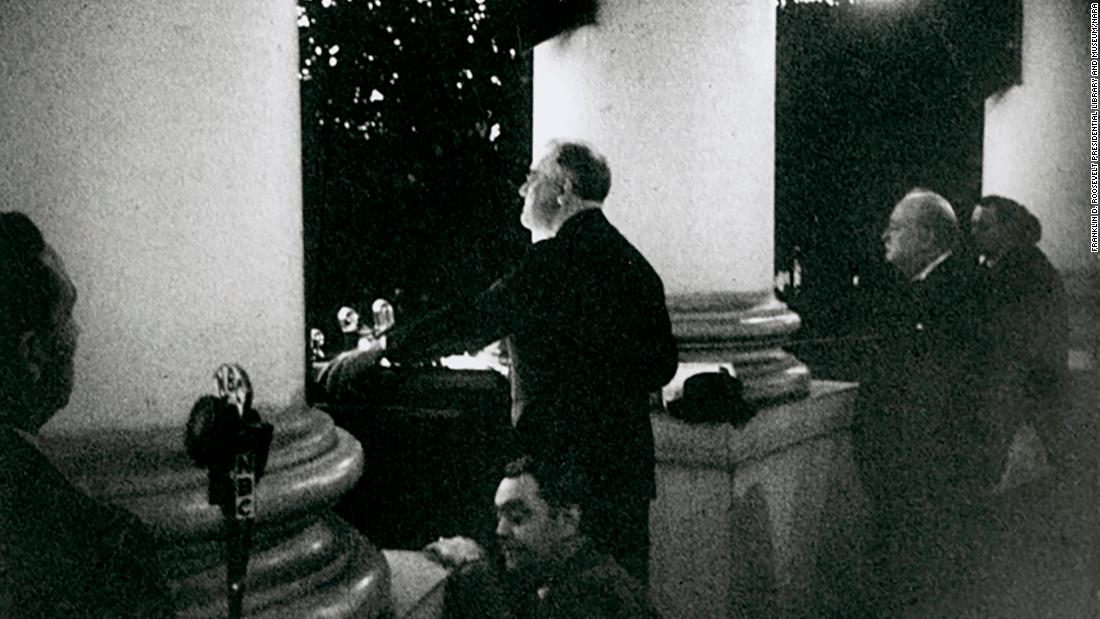[ad_1]

Sam Mendes is the real star of Sam Mendes’s new World War I drama.
The list of great films about World War I in Europe is surprisingly short: After the acknowledged masterpieces All Quiet on the Western Front (1930) and Paths of Glory (1957), there aren’t many more worth discussing. 1917 is a splashy attempt to join the list that is well worth seeing yet suffers from comparison to the far better film covering the same ground that was released just eleven months ago.
That movie, the Peter Jackson documentary They Shall Not Grow Old, was meticulously, devastatingly real. 1917, by contrast, starts out convincing but comes to seem unforgivably contrived around the halfway mark, and by the end it asks us to suspend disbelief to such a degree that the effect is nearly absurd. I was reminded of Roman Polanski’s The Pianist, whose protagonist developed into a kind of Buster Keaton figure who miraculously bumbled his way through a storm of violence so focused that it seemed as if the Wehrmacht’s sole purpose was to kill this random citizen.
1917 is defined also by its surface contrivance: Sam Mendes has designed the film as a single take (followed, after a brief blackout in the second half, by another single take). Like Birdman, though, as well as the fantastically complicated opening scene of Mendes’s own James Bond film Spectre, 1917 is actually composed of many shots ingeniously woven together using digital wizardry to look like a single take. I dislike the gimmick, at least at this length; staying on a single take creates a sense of hanging in midair as we wonder when we’ll finally hit the ground, and it works beautifully for a single scene like the opening of Spectre or Touch of Evil (1958), the Orson Welles film that inspired all subsequent one-take sorcery. Keeping a take going for an entire movie, though, is a mistake. It redirects the attention from the story to the technique. To be slightly rude about it, it makes Sam Mendes, not his characters, the star of the movie.
Who are those characters? Two ordinary British soldiers, Schofield (George MacKay) and Blake (Dean-Charles Chapman) who begin the film lazing under a tree in France on April 6, 1917, and then enter the trenches from the very rear, where they begin as slopes angling down from flat ground. The trenches grow deep and labyrinthine, and the nonchalance of the soldiers’ descent into the inferno is mesmerizing. Mendes and the great cinematographer Roger Deakins (who won an Oscar for Blade Runner 2049) hint that they are going to develop an ordinary day into a spectacle, and they do not disappoint. In one nook, a general (Colin Firth is brilliant in a cameo) alerts the two men that another unit, just ahead, is about to launch a doomed attack, unaware that the Germans have laid a trap for them. Blake’s own brother, a lieutenant, is among those who will certainly die unless the two men can carry a message across dangerous open land and deliver the order to a colonel (Benedict Cumberbatch) to call off the attack.
That element of the script, by Mendes and Krysty Wilson-Cairns, is a brilliant setup that reduces a vast and bewildering conflict to the question of a man’s determination to save his brother, a storytelling strategy that recalls Saving Private Ryan. Yet Mendes, though a brilliant theater director — his productions of The Ferryman and The Lehman Trilogy, both of which he recently staged in New York, are two of the best plays I’ve ever seen — has a tendency to overegg the pudding when he’s working in film. His movies — American Beauty, Jarhead, Revolutionary Road — lack subtlety. (And he began Skyfall ludicrously, by having James Bond survive getting shot and falling hundreds of feet. Bond is not a superhero.) Mendes’s themes tend to be shouted rather than implied, as though the stage director in him worries that the half-asleep patron in the final row of the balcony might have missed the point. In 1917, when the soldiers start musing about the value of medals in the grand scheme of things, they sound like screenwriters.
As Mendes ramps up the showmanship in the second half of the film, 1917 feels less and less like a gripping tale of two soldiers trying to survive and more like an overly elaborate effort to jam every possible kind of wartime confrontation into a few hours of one day. 1917 certainly held my interest, and I admire the technical skill of it. Moreover, had it been released a couple of years ago I might have swallowed it whole instead of spending portions of it scoffing and rolling my eyes at the increasingly manufactured nature of the situations. They Shall Not Grow Old, though it was a spectacular feat of filmmaking, didn’t call attention to its director; it felt as if Jackson were removing all filters and distortions in order to put us in the soldiers’ muddy boots. Mendes’s film, by contrast, is less a staggering belt of reality than it is a nifty bag of tricks.
[ad_2]
Source link


